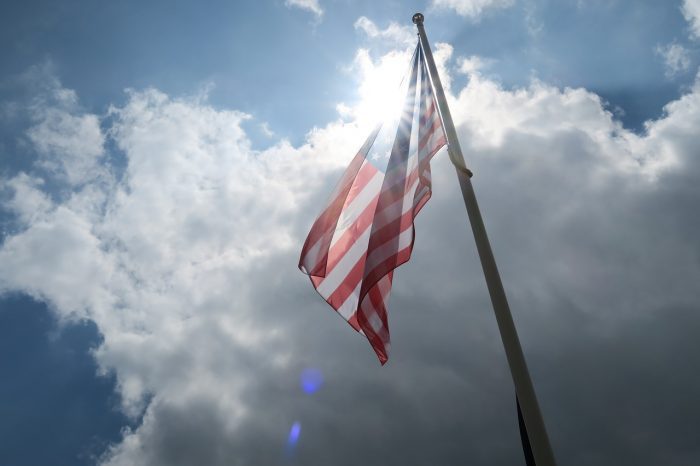Independence in context: America continually overcomes adversity
In recent years, much has been said of the state of division in the United States. But as the nation celebrates its 247th birthday, Americans should remember the many struggles they have overcome.
After the fall of Fort Sumter in April 1861, President Abraham Lincoln believed the Confederate South would never peaceably re-enter the Union. The country was engaged in the defining conflict of its history and the deadliest war its citizens had ever fought.
Yet Lincoln helped the nation carry on, ensuring that Americans would reunite under one flag. In a speech to Congress on July 4, 1861, he asserted the cause of the Union as that of the American Revolution. The Civil War, Lincoln affirmed, would prove to the world the viability of self-rule.
“It is now for [Americans] to demonstrate to the world that those who can fairly carry an election can also suppress a rebellion,” Lincoln said, “that ballots are the rightful and peaceful successors of bullets, and that when ballots have fairly and constitutionally decided there can be no successful appeal back to bullets.”
And the nation endured.
In 1914, President Woodrow Wilson nervously watched as European powers marched toward World War I — the “powder keg” ignited after the heir of the Austro-Hungarian Empire, Archduke Franz Ferdinand, was assassinated.
“Nobody outside of America believed when it was uttered that we could make good our independence,” Wilson told a beleaguered nation. “Now nobody anywhere would dare to doubt that we are independent and can maintain our independence.”
After his re-election in 1916, Wilson declared war against Germany in April 1917 to make the “world safe for democracy.” As it had during the Civil War, the nation again endured.
In early July 1945, the United States was nearing the end of World War II. With Nazi Germany defeated, America was one month away from dropping the atomic bomb against the Japanese. On July 4 of that year, President Harry S. Truman tied the war effort to the cause of American freedom.
“This year, the men and women of our armed forces, and many civilians as well, are celebrating the anniversary of American independence in other countries throughout the world,” he said. “Citizens of these other lands will understand what we celebrate and why, for freedom is dear to the hearts of all men everywhere.”
The war would end the following month, and the nation endured once more.
President John F. Kennedy presided over the federal government at a volatile moment. After the failed Bay of Pigs invasion in April 1961 and only months away from the Cuban Missile Crisis in October 1962, Kennedy reminded his fellow citizens of the cause of independence on July 4, 1962.
“For that Declaration unleashed not merely a revolution against the British, but a revolution in human affairs,” Kennedy noted. “Its authors were highly conscious of its worldwide implications.”
Despite the tumult of the 1960s, the nation still endured.
Near the end of the Cold War, President Ronald Reagan was determined to ensure American victory over the Soviet Union in this global conflict. With tensions mounting between these two superpowers, Reagan reminded citizens of the resolve of America’s founders.
“Their courage created a nation built on a universal claim to human dignity — on the proposition that every man, woman and child had a right to a future of freedom,” Reagan said in his July 4, 1986 speech, likening the cause of independence to the triumph over communism.
The U.S. won the Cold War, and the nation endured.
Today, as Americans enjoy outdoor barbecues and spend time with loved ones, they should remember that the legacy of independence still flourishes. In the face of brewing tensions abroad, Americans must remember that we have experienced such challenges before and will do so again.
And the nation will endure.
Rich Acritelli is a history teacher at Rocky Point High School and adjunct professor at Suffolk County Community College.







